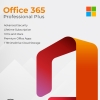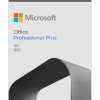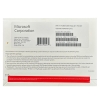Mastering Password Security: Your Guide to Creating and Managing Strong Passwords
Introduction:
Mastering Password Security: In the digital age, where our lives are intertwined with countless online accounts, password security has become a paramount concern. Weak passwords can lead to data breaches, identity theft, and unauthorized access. This blog aims to equip you with the knowledge and strategies needed to enhance your password security, ensuring your digital presence remains resilient against cyber threats.
Table of Contents:
- The Importance of Password Security
- Why Strong Passwords Matter
- Consequences of Weak Passwords
- Creating Strong Passwords
- Elements of a Strong Password
- Password Length and Complexity
- Avoiding Common Mistakes
- Password Management Best Practices
- The Dangers of Reusing Passwords
- Implementing Multi-Factor Authentication (MFA)
- Using Password Managers
- Regular Password Updates
- The Benefits of Changing Passwords
- Establishing a Routine
- Protecting Passwords from Cyber Threats
- Recognizing Phishing Attempts
- Securing Devices and Networks
- Educating Family and Colleagues
- Spreading Password Security Awareness
- The Future of Passwords
- Biometric Authentication
- Two-Factor Authentication (2FA)
- Passwordless Solutions
- Real-Life Password Security Stories
- Notable Data Breaches and Lessons Learned
- Conclusion
The Importance of Password Security:
Why Strong Passwords Matter Strong passwords act as the first line of defense against unauthorized access, protecting your sensitive information from cybercriminals.
Consequences of Weak Passwords Weak passwords can lead to unauthorized account access, identity theft, financial loss, and compromised personal and professional data.
Creating Strong Passwords:
Elements of a Strong Password Incorporate a mix of uppercase and lowercase letters, numbers, and special characters.
Password Length and Complexity Aim for a password length of at least 12 characters for optimal security.
Avoiding Common Mistakes Avoid using easily guessable information like birthdays, names, or common dictionary words.
Password Management Best Practices:
The Dangers of Reusing Passwords Reusing passwords across multiple accounts can expose you to significant risks if one account is compromised.
Implementing Multi-Factor Authentication (MFA) MFA adds an extra layer of security by requiring a second form of verification, such as a code from your phone.
Using Password Managers Password managers securely store and generate complex passwords for your various accounts, reducing the need to remember them.
Regular Password Updates:
The Benefits of Changing Passwords Regular password changes minimize the risk of unauthorized access and account breaches.
Establishing a Routine Set reminders to update your passwords periodically to ensure ongoing security.
Protecting Passwords from Cyber Threats:
Recognizing Phishing Attempts Be cautious of suspicious emails or messages requesting your password or personal information.
Securing Devices and Networks Use strong passwords for your devices and secure your home network to prevent unauthorized access.
Educating Family and Colleagues:
Spreading Password Security Awareness Share the importance of strong passwords and password management with friends, family, and colleagues.
The Future of Passwords:
Biometric Authentication Explore the use of fingerprint, facial recognition, and iris scanning for secure authentication.
Two-Factor Authentication (2FA) Learn about the evolving methods of 2FA, adding extra layers of security to your accounts.
Passwordless Solutions Discover emerging technologies that aim to eliminate traditional passwords in favor of more secure alternatives.
Real-Life Password Security Stories:
Notable Data Breaches and Lessons Learned Examine real-world examples of data breaches and the valuable lessons they provide for maintaining strong password security.
Conclusion:
Mastering password security is essential in today’s digital landscape. By creating strong passwords, adopting effective management practices, and staying informed about emerging authentication technologies, you can significantly enhance your online security. Remember, your password is your first line of defense, and by fortifying it, you’re safeguarding your valuable digital assets and personal information from cyber threats. Stay vigilant, stay secure!










